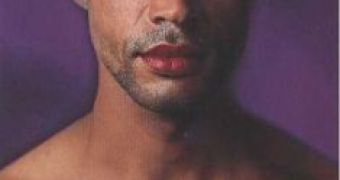Is human homosexuality an immoral choice or a biological trait? A study, which is about to start soon, aims at solving this issue. It will be made on 1,000 pairs of gay brothers, being by far the largest research looking for "gay" genes.
"If fresh evidence is found suggesting genes are involved, perhaps homosexuality will be viewed as no different than other genetic traits like height and hair color," said Julio Cabrera, a student at DePaul University in Chicago, which together with his brother has been recruited for this research.
Parents and straight brothers are also included and the first results will come by 2008. Previous researches have already revealed that homosexuality tends to cluster in families, but this does not show that this is connected to genes as families usually share similar child-rearing habits, religion and other practices that could play a major role in a child's sexual orientation.
Studies made on identical twins, who share the same DNA, have provided mixed results. One 1990s research detected that the identical twin of a gay man presented a 52 % chance of being gay, too, while this value was of 9 % in non-twin brothers. A 2000 Australian research of identical twins found a much lower value.
"I suspect there isn't one so-called "gay gene". It is more likely there are several genes that interact with nongenetic factors, including psychological and social influences, to determine sexual orientation. Still, if there's one gene that makes a sizable contribution, we have a pretty good chance of finding it." said psychiatrist Dr. Alan Sanders of Evanston Northwestern Healthcare Research Institute, lead researcher of the new research.
"Many gays fear that if gay genes are identified, it could result in discrimination, prenatal testing and even abortions to eliminate homosexuals. However, if we confirm that sexual orientation is an immutable characteristic, we are much more likely to get the courts to rule against discrimination." said Joel Ginsberg of the Gay and Lesbian Medical Association.
"There is less research on lesbians, although some studies suggest that male and female sexual orientation may have different genetic influences." said Sanders.
This study is a sequel to a 1993 research made on 40 pairs of gay brothers. That research discovered that gay brothers share some genetic markers in an area on the X chromosome, received from their mothers. This points that genes controlling a male's sexual orientation could be located somewhere in that region.
"With so many participants, our study has a better chance of finding the same markers and perhaps others on different chromosomes." said Sanders.
Markers present only in the gay members of the family could be linked to homosexuality.
"Even if we find no evidence, that won't mean genetics play no role; it may simply mean that individual genes have a smaller effect. We do not have a predetermined point we are trying to prove. We are trying to pry some of nature's secrets loose with respect to a fundamental human trait." said Sanders.
"Being gay was an embarrassment, especially for our father. We had cousins who were gay, but I still feel I have to hide my sexual orientation and I struggle with my "double life." said Mauricio Cabrera, 41, a car dealership employee from Olathe, Kansas.
"Having an older brother who was gay made it easier for me to accept my sexuality", said Julio, his brother.
Because of the difficulties of being gay in a mainly straight society, this sexual orientation "is not a choice someone would make in life," said Jim Larkin, 54, a gay journalist in Flint, Mich., not participating in this research.
His two gay brothers died: one from AIDS and the other committed suicide.
"I didn't come out until I was 26. I fought and I prayed and I went to Mass and I said the rosary. I moved away from everybody I knew ... thinking maybe this will cause the feelings to subside. It doesn't." said Larkin.

 14 DAY TRIAL //
14 DAY TRIAL //